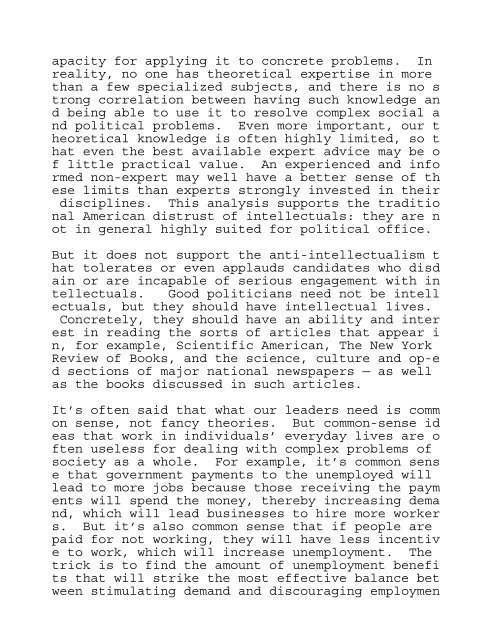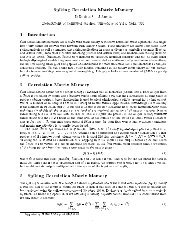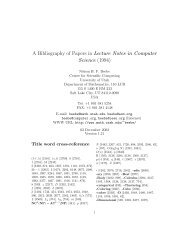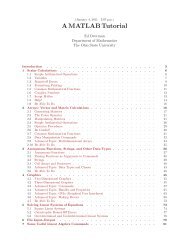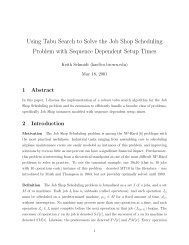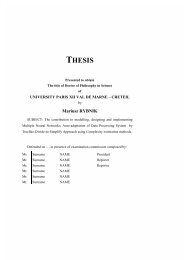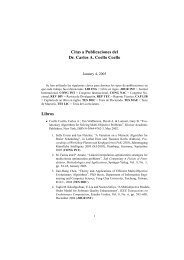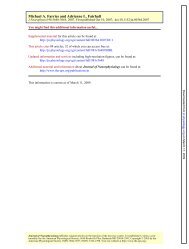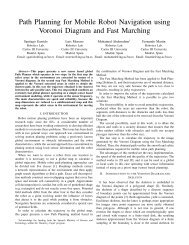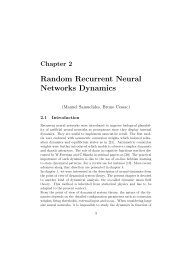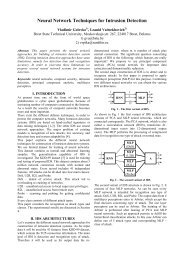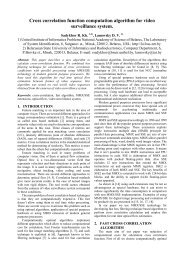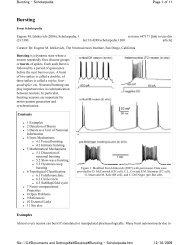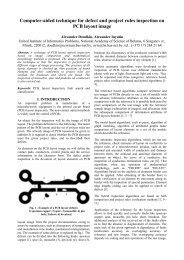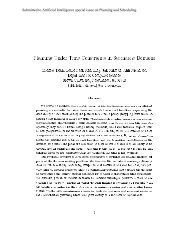NYT-1201: STATE OF THE ART A Thermostat That's Clever, Not ...
NYT-1201: STATE OF THE ART A Thermostat That's Clever, Not ...
NYT-1201: STATE OF THE ART A Thermostat That's Clever, Not ...
Create successful ePaper yourself
Turn your PDF publications into a flip-book with our unique Google optimized e-Paper software.
apacity for applying it to concrete problems. In<br />
reality, no one has theoretical expertise in more<br />
than a few specialized subjects, and there is no s<br />
trong correlation between having such knowledge an<br />
d being able to use it to resolve complex social a<br />
nd political problems. Even more important, our t<br />
heoretical knowledge is often highly limited, so t<br />
hat even the best available expert advice may be o<br />
f little practical value. An experienced and info<br />
rmed non-expert may well have a better sense of th<br />
ese limits than experts strongly invested in their<br />
disciplines. This analysis supports the traditio<br />
nal American distrust of intellectuals: they are n<br />
ot in general highly suited for political office.<br />
But it does not support the anti-intellectualism t<br />
hat tolerates or even applauds candidates who disd<br />
ain or are incapable of serious engagement with in<br />
tellectuals. Good politicians need not be intell<br />
ectuals, but they should have intellectual lives.<br />
Concretely, they should have an ability and inter<br />
est in reading the sorts of articles that appear i<br />
n, for example, Scientific American, The New York<br />
Review of Books, and the science, culture and op-e<br />
d sections of major national newspapers — as well<br />
as the books discussed in such articles.<br />
It’s often said that what our leaders need is comm<br />
on sense, not fancy theories. But common-sense id<br />
eas that work in individuals’ everyday lives are o<br />
ften useless for dealing with complex problems of<br />
society as a whole. For example, it’s common sens<br />
e that government payments to the unemployed will<br />
lead to more jobs because those receiving the paym<br />
ents will spend the money, thereby increasing dema<br />
nd, which will lead businesses to hire more worker<br />
s. But it’s also common sense that if people are<br />
paid for not working, they will have less incentiv<br />
e to work, which will increase unemployment. The<br />
trick is to find the amount of unemployment benefi<br />
ts that will strike the most effective balance bet<br />
ween stimulating demand and discouraging employmen


